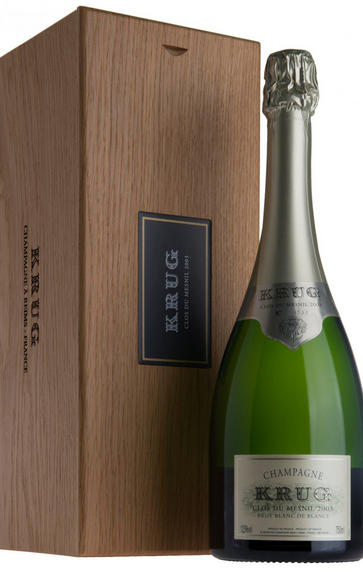
2002 Champagne Krug, Clos du Mesnil, Blanc de Blancs, Brut
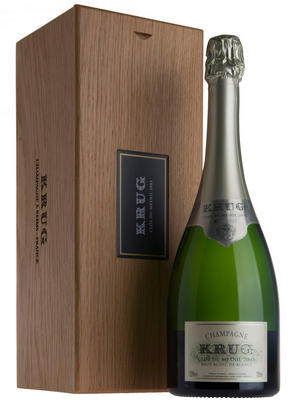
Critics reviews
The 2002 Clos du Mesnil is wonderfully pliant and expressive in the glass. The radiant personality of the year comes through in the wine's ripe, tropically-leaning flavours and open-knit personality.
I imagine the 2002 will develop relatively quickly by Clos du Mesnil standards. Even so, there is more than enough freshness underpinning the fruit to support at least two decades of very fine drinking.
Drink 2019 - 2032
Ian D'Agata, Vinous.com (March 2018)
Very lively, taut and willowy. Very long and lean and vital. Sort of electric energy. Blackcurrant-leaf flavours.
Drink 2018 - 2030
Jancis Robinson MW, JancisRobinson.com (September 2017)
This is a wine with staggering length and immense purity. It's as powerful as chardonnay, showcasing an incredible depth of pure fresh lemons, yellow grapefruit, honey and dried white and yellow flowers. The concentration and complexity of primary fruits are outstanding, and there are some more exotic flavours here, too, in the peach and green-mango spectrum.
The texture is ultra-fine and creamy through the mid-palate, its majestic curves sweeping long around a sturdy mineral core. This is very silky and focused, offering gently creamy moments before twisting towards a composed, restricted and compressed chalk-like finish. It delivers an impression of chardonnay that captures incredible richness, fleshiness, persistence and power. Yet the acidity is staggering while being simultaneously perfectly balanced.
Drink now, but this will have much more to come after 2020.
James Suckling, JamesSuckling.com (October 2016)
About this WINE
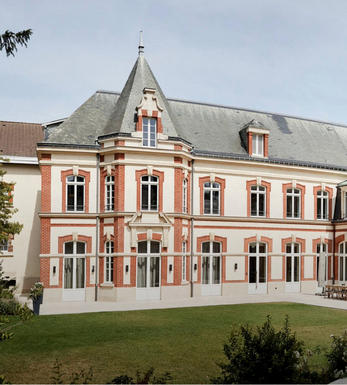
Krug
Krug was established in 1843 and has since specialised in producing only prestige and specialised champagnes. Krug is the only firm still producing all its champagne in small oak casks, an essential element for developing Krug's intense bouquet and complex flavours. Today, Henri, Rémi and Olivier Krug, who supervise every step of production, tasting and blending, represent the 5th and 6th generations.
With long periods of maturation (6-8 years), Krug champagne continues to age gracefully after release, developing an intensely rich, nutty flavour whilst remaining remarkably fresh.
Krug`s finest champagne is Clos du Mesnil, a 100%-Chardonnay based champagne that comes from a small walled vineyard at Le Mesnil-sur-Oger. It is one of the world`s greatest Blanc de Blanc champagnes.
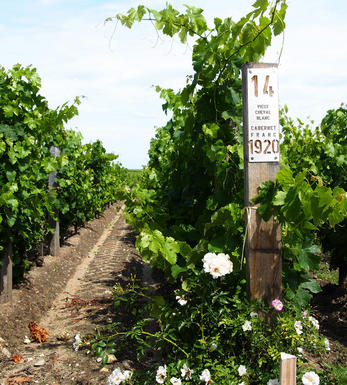
Blanc de Blancs
In Champagne, the term Blanc de Blancs designates Champagnes made only from Chardonnay grapes. The vineyards located between Cramant and Mesnil-sur-Oger in Cote de Blancs yield the best examples of the style.
A classic Blanc de Blancs is restrained and elegant when young, yet with ageing it develops a mouth-coating brioche richness that overlays an intense expression of fruitiness. Blanc de Blancs are endowed with longer ageing potential than a typical Blanc de Noirs.
Recommended Producers: Salon, Billecart Salmon, Jacques Selosse, Dom Ruinart, Krug, Le Mesnil Grand Cru, Guy Larmandier
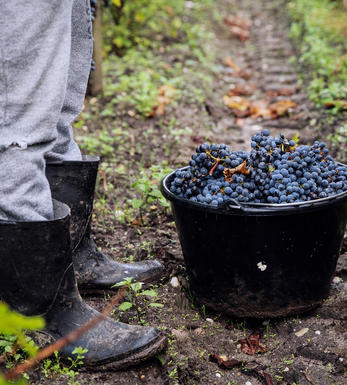
Champagne blend
Which grapes are included in the blend, and their proportion, is one of the key factors determining the style of most Champagnes. Three grapes are used - Pinot Noir, Chardonnay and Pinot Meunier.
26% of vineyards in Champagne are planted with Chardonnay and it performs best on the Côtes des Blancs and on the chalk slopes south of Epernay. It is relatively simple to grow, although it buds early and thus is susceptible to spring frosts. It produces lighter, fresher wines than those from Burgundy and gives finesse, fruit and elegance to the final blend. It is the sole grape in Blancs de Blancs, which are some of the richest long-lived Champagnes produced.
Pinot Noir accounts for nearly 40% of the plantings in Champagne and lies at the heart of most blends - it gives Champagne its body, structure, strength and grip. It is planted across Champagne and particularly so in the southern Aube district.
The final component is Pinot Meunier and this constitutes nearly 35% of the plantings. Its durability and resistance to spring frosts make the Marne Valley, a notorious frost pocket, its natural home. It ripens well in poor years and produces a soft, fruity style of wine that is ideal for blending with the more assertive flavours of Pinot Noir. Producers allege that Pinot Meunier lacks ageing potential, but this does not deter Krug from including around 15% of it in their final blends.


Buying options
Add to wishlist
Description
The 2002 Clos du Mesnil is wonderfully pliant and expressive in the glass. The radiant personality of the year comes through in the wine's ripe, tropically-leaning flavours and open-knit personality.
I imagine the 2002 will develop relatively quickly by Clos du Mesnil standards. Even so, there is more than enough freshness underpinning the fruit to support at least two decades of very fine drinking.
Drink 2019 - 2032
Ian D'Agata, Vinous.com (March 2018)
wine at a glance
Delivery and quality guarantee